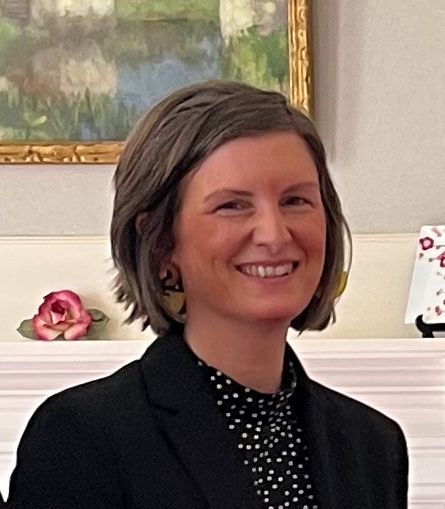Professor Charlie Peevers
- Professor of International Law (School of Law)
email:
Charlie.Peevers@glasgow.ac.uk
School of Law, 8 Professor Square
Biography
Charlie Peevers is Professor of International Law and member of the Glasgow Centre for International Law & Security. She is on research leave until August 2026 working on the Scottish Disarmament Project.
Charlie’s research grapples with the stakes involved in public contestation of international law, charting the politics of legal argument and world-making through law. She is currently working on two sole authored book projects, one charting the legal history of Scottish disarmament activism over the long 20th century; the other interrogating the projection of future worlds through canal building at Suez and Panama. She is also co-editing a book with the WIL project team, ‘Women, Law and Legal Work in Scotland: Dialogues about our past, present and future’ due out in 2025 with EUP.
She has been awarded grants from the Royal Society of Edinburgh (Personal Fellowship, 2022-24) and the Arts & Humanities Research Council (RDE Fellowship, 2024-2026) and is a Senior Fellow of the Institute for International Law & the Humanities, Melbourne Law School (2024-2026) as well as regular Faculty of the Institute for Glasgow Law & Policy, Harvard Law School. For over a decade she has contributed to the IGLP’s intensive writing workshops for doctoral candidates and policy professionals, and to the Global Scholars Academy, a collaboration between the Graduate Institute, Geneva and the IGLP, supported by the Open Society University Network.
Charlie has taught at a number of international institutions including LSE, King’s College, London, Auckland, Melbourne and Sydney Law Schools and has been recognized with awards for teaching excellence. She is a Fellow of the UK Higher Education Academy.
Charlie collaborates with colleagues in the School of Law and other organisations on the Women in Law project. The project includes tracing the early years of professional practice in Scotland, women's entry into academia, and women engaged in legal activism outside the formal study and practice of law, whose impact on Scottish history is both profound and woefully under-acknowledged.
She has an interdisciplinary background in history, politics, international relations and law and has practised across a broad range of legal areas (called 2009, Middle Temple, England & Wales). Charlie continues to engage in consultancy work on human rights and international law.
In 2015/16 Charlie was a Visiting Fellow at the Program on Science, Technology and Society at Harvard Kennedy School with Professor Sheila Jasanoff, researching canals, collective memory and military intervention.
Grants
Royal Society of Edinburgh, 12-month Personal Research Fellowship
Scotland’s long Cold War (1945-1999): nuclear weapons and women’s activism on a global front line’ (April 2022-23; £54,220.86)
ESRC IAA (co-I with Maria Fletcher)
'Creative Expression and Cultures of Progressive Change in Scotland: 100 years of Women in Law' (June 2021 - May 2022; £12,260.28)
Royal Society of Edinburgh, Research Reboot (Covid-19 Impact) Research Grant
'Alternative Visions of International Law, War and Peace: Women, Scotland and Global Order in the 20th Century' (June - December 2021; £18,267.75)
Supervision
Research students under supervision
- Mohashin, KM Shazzad - 'The Appropriation of the Arctic: International Law in Retrospect and the Evolution of Sovereignty'
- Sal, Fátima
THE CONSTRAINTS CREATED BY INTERNATIONAL LAW TO RETHINKING INCLUSIVE DEMOCRATIC SYSTEMS OF GOVERNANCE FOR “BLACK” ISLAMIC NATIONS



